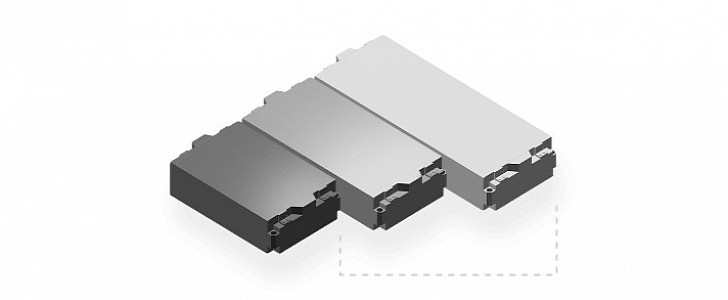Access to raw materials has become a critical issue for electric automakers and their supply chains. One of the ways of transitioning to a low-carbon automotive industry, as well as maintaining a steady supply chain, is through recycling. One of the top EV battery producers in the world has just made a significant step in this direction, by signing a multimillion-dollar agreement with a major battery recycler.
LG Chem, Korea’s largest diversified chemical company, and its battery unit, LG Energy Solution, have signed a reciprocal supply agreement with Toronto-based Li-Cycle, one of the biggest battery recyclers in North America. On one hand, LG will sell lithium-ion battery manufacturing scrap and other materials to the recycler and, on the other hand, Li-Cycle will supply LG with nickel, in the form of nickel sulphate.
Starting 2023, the recycler will provide LG with nickel for the upcoming decade – over 20,000 tons of it, to be more exact, which is enough to produce lithium-ion batteries for almost 300,000 high-performing electric vehicles. The agreement also includes a $50 million investment ($25 million from LG Chem and LG Energy Solution, respectively) in Li-Cycle shares.
As one of the most important EV battery providers, LG is looking to consolidate its access to essential raw materials, through this substantial agreement. Nickel is a crucial cathode component for EV batteries. According to Bloomberg, by packing more energy into cells, the use of nickel allows producers to use less cobalt, which is a more expensive material, but the market for automotive-grade nickel is also facing the risk of a serious deficit by 2024.
By supplying each other, LG and Li-Cycle are trying to establish a “closed loop ecosystem” that could eventually make battery costs drop by 50%. In addition to stabilizing nickel supplies, using recycled materials also has an environmental benefit, by helping reduce greenhouse gas emissions typically associated with supply chains.
Another important thing to note is that, as EV sales continue to increase, used EV storage packs will also need to be dealt with. According to Bloomberg’s energy data and analysis unit, 1.7 million tons of scrapped batteries will make their way to junkyards by 2030. And one of the best ways to deal with that is through recycling and circular economy.
Starting 2023, the recycler will provide LG with nickel for the upcoming decade – over 20,000 tons of it, to be more exact, which is enough to produce lithium-ion batteries for almost 300,000 high-performing electric vehicles. The agreement also includes a $50 million investment ($25 million from LG Chem and LG Energy Solution, respectively) in Li-Cycle shares.
As one of the most important EV battery providers, LG is looking to consolidate its access to essential raw materials, through this substantial agreement. Nickel is a crucial cathode component for EV batteries. According to Bloomberg, by packing more energy into cells, the use of nickel allows producers to use less cobalt, which is a more expensive material, but the market for automotive-grade nickel is also facing the risk of a serious deficit by 2024.
By supplying each other, LG and Li-Cycle are trying to establish a “closed loop ecosystem” that could eventually make battery costs drop by 50%. In addition to stabilizing nickel supplies, using recycled materials also has an environmental benefit, by helping reduce greenhouse gas emissions typically associated with supply chains.
Another important thing to note is that, as EV sales continue to increase, used EV storage packs will also need to be dealt with. According to Bloomberg’s energy data and analysis unit, 1.7 million tons of scrapped batteries will make their way to junkyards by 2030. And one of the best ways to deal with that is through recycling and circular economy.






